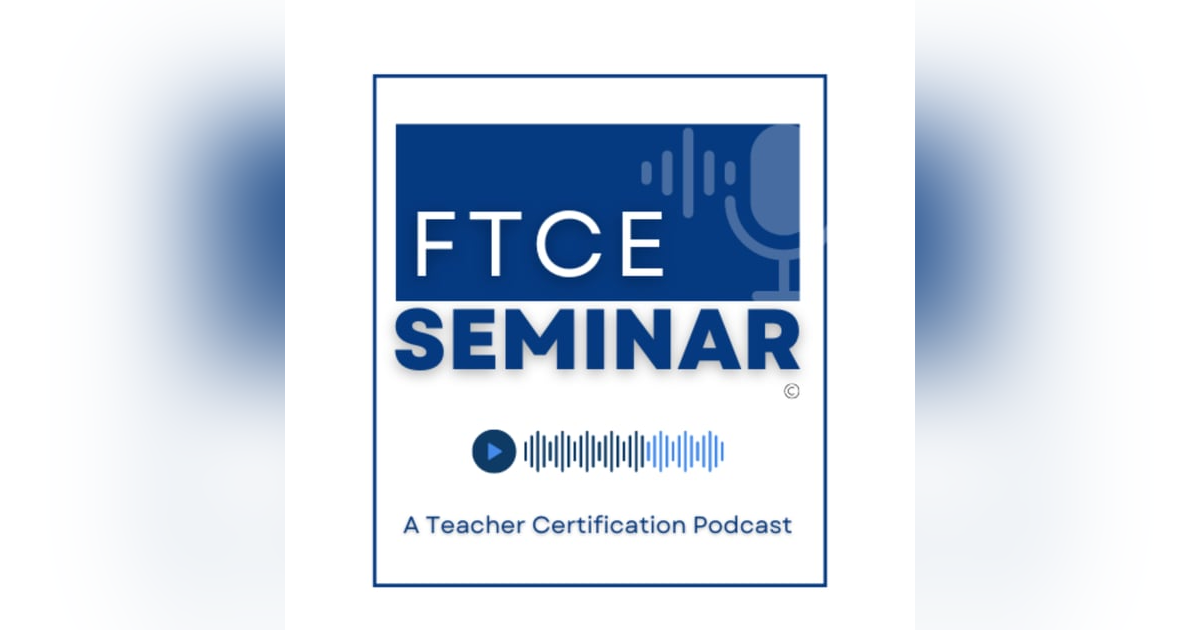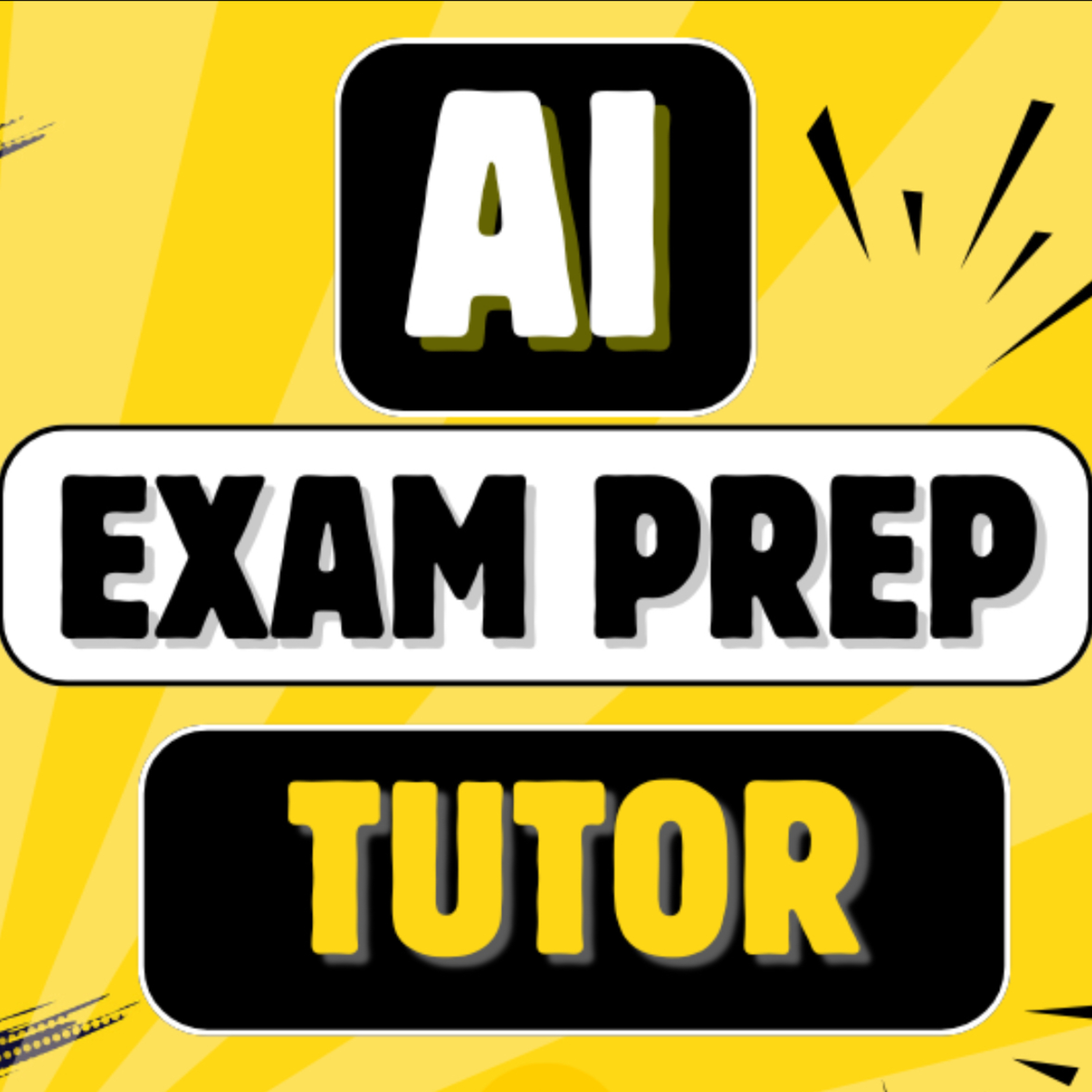E16: FTCE | General Knowledge | English | Adjectives and Adverbs
In today’s episode, I’ll be talking about the FTCE General Knowledge English Subtest. This is part 8 of a multi-series review of what YOU need to know to pass the English section of the GK.
About FTCE Seminar
How do you PASS the Florida Teacher Certification Exams (FTCE)? On this podcast, we will be discussing concepts from the FTCE Testing Blueprint to help you prepare for the exam. ..Not only is each episode based on the FTCE General Knowledge essay subtest, English Language Skills subtest, Reading subtest, and Mathematics subtest, but I am also using my experience as a FTCE Tutor, 10 year classroom teacher who has passed the FTCE GK Exam, FTCE Professional Education Exam, FTCE Exceptional Student Education Exam, FTCE English 6-12 Exam, FTCE Journalism Exam, and the Reading Endorsement to help you pass and start teaching. ..How do educational podcasts work? Each podcast covers one concept from the FTCE Testing Blueprint. This method is called micro-learning where you listen repeatedly to concepts to reinforce your knowledge and understanding. Try it out! Check it out! And leave your questions and comments below.
-----------------------------------------------
RESOURCES (Free)
💢 FTCE/FELE https://www.fl.nesinc.com/
💢 FTCE Seminar Websitehttps://www.ftceseminar.com/
💢 FTCE Podcasting Study Guides @ TpTStudy Hacks Podcast Guide.
-----------------------------------------------
RESOURCES (For Purchase)
⚡️ FTCE Podcasting Study Guides @ TpT
- FTCE GK Essay Prep
- FTCE GK English Language Skills Prep
- FTCE GK Reading Prep
- FTCE GK Math Prep
⚡️ FTCE Test Prep Books @ Amazon
- General Knowledge Exam https://amzn.to/3QQrCrv
- Professional Education Exam https://amzn.to/4aHwuql
- Elementary Education Exam https://amzn.to/3WN5FNX
- Exceptional Student Education Exam https://amzn.to/3V5CLY0
- *As an Amazon Associate I earn from qualifying purchases made via links which provide a small commission to this channel and accompanying website.
-----------------------------------------------
Support and Donations
💟This podcast and channel are listener supported, contributions can be made at:https://www.buymeacoffee.com/ftceseminar
You can subscribe to the FTCE Seminar Podcast at www.ftceseminar.com
------------------------------------------------
#FTCE #teachercertification #teachers #education #podcast #educationalpodcast #certification #mathprep #professionaleducation #englishprep #essayprep #generalknowledge #teachertraining #exam #test #motivation #study #studyhacks #english #reading #maths #teachereducation #assessment #testtakingstrategies #readings #mathpreparation #englishgrammar #exammotivation #exampreparation #overthinking #practicetests #motivational #testanxiety #readingcomprehension
--- Support this podcast: https://podcasters.spotify.com/pod/show/ftceseminar/support0:00:00
Welcome to episode 16 of FTCE seminar, the Florida Teacher Certification Exam Podcast, where we talk about testing tips, study hacks, and how to pass the FTCE. I'm your host, Mercedes Musto. In today's episode, I'll be talking about the FTCE General Knowledge English Subtest. This is part eight of a multi-series review
0:00:22
of what you need to know to pass the English section of the GK. Let's get started. Today we are reviewing adjectives and adverbs and how to use them correctly. Concept eight, adjectives and adverbs. Adjectives and adverbs both modify other words. Modify is kind of a lot, yeah.
0:00:43
What I mean is that both adjectives and adverbs modify verbs and can even add description to other adjectives and adverbs. How cool is that? Listen carefully to the following sentence and identify the adjectives and which nouns are they modifying? Listen carefully. The comical student liked to tell funny jokes in class. Hmm. If you selected comical and funny, you are correct. Great job. Next step, who is comical and what is funny? Super, the comical adjective, student, noun, like to tell funny, adjective, jokes, noun in class.
0:01:47
Easy peasy, right? Let's up our grammar game. Now, try this one, listen carefully. The student spoke quick to finish his presentation on time. Hmm, okay, I'm breaking this down. The student noun, spoke, verb, okay. How did the student speak? The sentence says, the student spoke quick.
0:02:11
Boom, so the word quick is modifying the verb spoke.
0:02:16
What?
0:02:17
But does that sound correct? No. Here's a hint about adverbs. A lot of times adverbs end in L-Y, which makes them easy to identify. Let's add the L-Y to quick and see how the sentence sounds. Listen again.
0:02:35
The student spoke quickly to finish his presentation on time. Oh, that's much better. Remember, adverbs can modify verbs, adjectives, and other adverbs, like in this next example. The incredibly confident student passed the test.
0:02:52
That's you, right?
0:02:53
Okay, so we can hear right off the bat that the words incredibly and confident are describing the noun student, but which one is which? Okay, listen again. The incredibly confident student passed the test. Here's a hint. Sometimes adverbs have an L-Y,
0:03:12
and we know that adverbs can modify adjectives and only adjectives can modify nouns. I totally get it. Therefore, incredibly is modifying the adjective confident and confidence modifying the noun student. Boom, you got this, you got this, I told you. Let's review. Adjectives and adverbs both modify words,
0:03:37
but there are some rules to remember. First, adjectives modify nouns or pronouns, and that's that. But adverbs are a bit more flexible because they can modify verbs, adverbs, and even other adjectives. The thing to remember about adverbs is a lot of times they end in L-Y, like quickly, quietly, or quizotically. I know, I know, I just, that was really silly, but
0:04:06
I had to use alliteration. I just had to. For more practice with adjectives and adverbs, visit ftceseminar.com to study the English portion of the test. The important thing is to start studying, and start studying today so you can pass the Florida Teacher Certification Exam. Well, what are you waiting for? Check us out on YouTube at FTCE Seminar and start studying today! This is your Quixotic host, Mercedes Musto. I know, I had to. Join me again on FTCE Seminar, a Florida teacher certification exam podcast, so you can pass the FTCE. I'd like to thank Kate, a Florida teacher certification exam podcast, so you can pass the FTCE. I'd like to thank Kate, Samantha, and the Pickens Multimedia Studio at the University of West Florida for making this
Transcribed with Cockatoo














